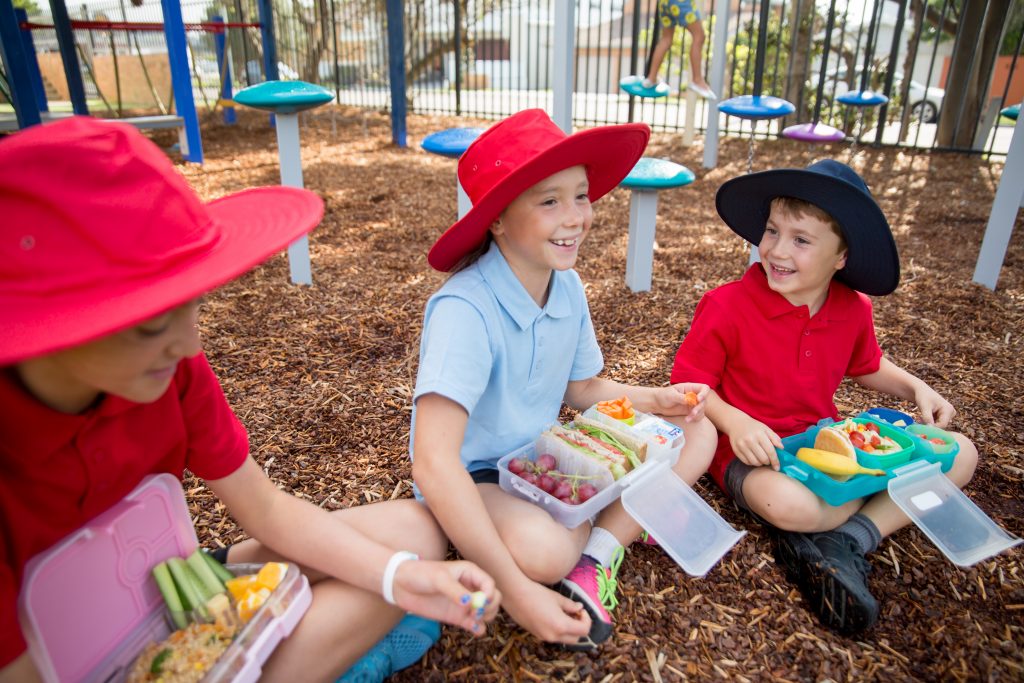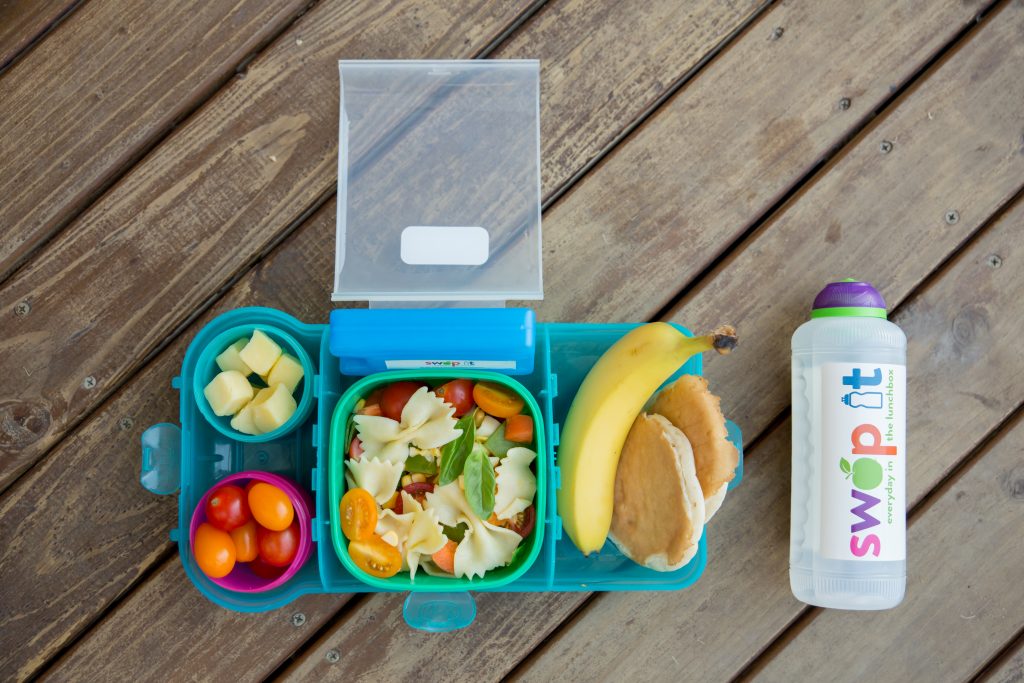The ‘digital lunchbox’ program that’s serving up a healthier future for Australian kids
In the fight to reduce childhood obesity, school lunchboxes have become a battleground, increasingly infiltrated by less healthy options.

But a new ‘digital lunchbox’ program called SWAP-IT, created in partnership by University of Newcastle researchers, Hunter New England Population Health staff, NSW Health and an industry technology partner, has demonstrated potential to make significant improvements to school nutrition and, by extension, the lifelong health of Australians.
Using text messages delivered through existing school–parent communication channels like Skoolbag, SWAP-IT encourages busy families to make simple lunchbox changes, substituting less healthy foods for options that boost nutritional value without adding empty kilojoules, cost or inconvenience.
The pilot project, funded by the NSW Health Translational Research Grants Scheme (TRGS) in 2018 and involving 32 schools and 3022 students, was so successful at creating change that SWAP-IT received a further TRGS grant of $500,000 in 2022 to roll it out across 400 NSW primary schools located in 11 Local Health Districts. The exciting results have also attracted a $997,000 grant from the federal Medical Research Future Fund to investigate taking SWAP-IT national and model its potential impact on Australians.
For Dr Rachel Sutherland, Research Fellow, dietitian and Nutrition Program Manager at Hunter New England Population Health and the University of Newcastle, devising and developing SWAP-IT, alongside project lead Professor Luke Wolfenden, has provided an opportunity to help ease the future burden of chronic disease.
SWAP-IT is affordable both for families and the broader public health system, and because of its simplicity, it is scalable and accessible to all, regardless of location or income.
Easing the cost of chronic disease
“I’ve seen chronic disease develop as a huge problem, but we focus most of our time and capacity in health on treating disease, which comes at enormous personal cost to families and society,” reflects Dr Sutherland. “But we’ve got the knowledge to prevent as much as 80 per cent of it, if we adopt programs or practices that we already know are effective.”
With children consuming a third to a half of their daily energy intake at school, Dr Sutherland’s preliminary research found that both schools and parents were hungry for evidence-based, credible and accessible information to build better dietary habits and tackle childhood obesity.
“For parents, the barriers to packing a healthy lunchbox are primarily around convenience, cost, ease, and ultimately child preference. So that comes up as our biggest barrier: ‘I packed what my child wants, because I don’t want them not to eat their lunch’.”
The SWAP-IT program consists of 10-12 simple, motivating text messages delivered direct to a parent’s mobile phone throughout the school term and designed according to the principles of behaviour change theory to encourage simple lunchbox swaps. Rather than focusing on obesity – more a problem of the future than the present – messages referenced more immediate health concerns and benefits such as protecting dental health, potential improvements in kids’ concentration and energy, and household convenience and cost savings.
The design team consulted with experts from a range of backgrounds including eating disorder dietitians and Indigenous healthcare specialists to ensure the messaging was optimal at a population level. Critical to the program’s success was that the substitute products were convenient, accessible in and outside cities and added no extra costs to stretched household budgets.

No judgement
“SWAP-IT came from a supportive angle avoiding judgement, offering tips and ideas about how to make small but effective changes. We don’t want parents to create beautiful bento boxes every day or buy expensive ingredients. It’s about making simple swaps that are healthier, but doable, achievable and able to make a big difference,” says Dr Sutherland.
Evaluation of the pilot showed startling results. SWAP-IT made positive changes in a school lunchbox and in kids’ overall diet, cutting discretionary energy intake by 117 kilojoules. Their overall dietary intake improved too, with energy intake reduced by an average 820 kilojoules a day, suggesting behaviour change that went beyond the school gates.
Researchers found no evidence that students were seeking out extra snacks after school to make up for those missed kilojoules. In fact, evaluation showed no negative effects from the program.
Delivered digitally, with access to a website for additional information, the program can be delivered for as little as $0.07 per student, with individual messages costing just a few cents. Results of the project and evaluation were published in the International Journal of Behavioral Nutrition and Physical Activity and at the 2022 International Obesity Congress.
“It was nice to see through the use of that formative work with both parents and schools, that we could develop something that was highly acceptable to all, but also had a significant positive impact,” says Dr Sutherland.
Updated 2 years ago